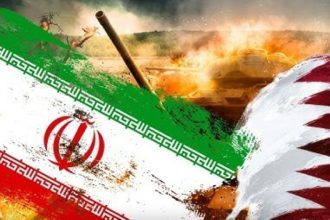SEPT 6, 1965 was the day when a first full-blown war between Pakistan and India broke out as india opened the4 Punjab front to ease pressure in Kashmir due to the Pakistan army’s Operation Grand Slam.
So what were Karachiites doing when the first bullet or mortar was fired from across the border? Well, on the evening of Sept 6, the city experienced a total blackout. The next day, Sept 7, the media informed the public that the district magistrate of Karachi had ordered a general blackout in the city from 7pm to 6am daily until further orders. It was done in view of the “unprovoked aggression” by India in Azad Kashmir and on Pakistani territory, resulting in the imposition of a state of emergency in the country. Necessary instructions were given to the civil defence staff, police and basic democrats to ensure strict compliance with the general blackout order.
The district magistrate, who was also the controller of civil defence, directed all motor vehicle plying city roads during blackout hours to have three-fourths of their headlights either covered or painted to minimise light emanation.
We often hear about the patriotic spirit with which Pakistanis, from every walk of life, faced the hardships of the 1965 war. Researching on the subject provides ample proof of it. On Sept 7, Begum Mujibun Nisa Akram, a member of the National Assembly, announced the formation of a women volunteer corps to train women in first aid procedures and civil defence.
Not just that, the same day, the retired army officers of Pakistan living in Karachi volunteered to place their services at the disposal of President Ayub Khan for ‘any service anywhere’.
The teacher-student community too wasn’t far behind. Vice Chancellor of the University of Karachi Dr I. H. Quraishi issued a statement stressing that the students and staff of the institution were ready to sacrifice everything to defend their land.
Moreover, all the minority communities condemned the Indian aggression. On Sept 10, members of the Hindu community, in a telegram to the commissioner of Karachi, said: “We the devoted Pakistani Hindus comprising all communities categorically condemn India’s brutal and stupid aggression against our beloved and sacred soil. We sincerely offer our fullest support to national defence activities and we all volunteer our wholehearted, enthusiastic, earnest and loyal services for civil defence activities and other allied spheres.”
As for the steps taken by the authorities to ensure people’s safety, on Sept 9 it was decided that the central government dispensaries located in the city would act as first-aid posts with immediate effect. The localities which were identified for the purpose were: Federal Area, Martin and Clayton roads, Lawrence Road, PECHS, Jutland Lines, Secretariat Dispensary near Cafeteria Saddar, P &T Colony and Intelligence School. Casualty clearing centres would also be set up by the citizens in all the 30 plus police stations.
And then the war started to have its impact. Although Karachi was not as much affected by it as, let’s say, other parts of the country, there were serious threats, such as one of enemy paratroopers. On Sept 8, Karachiites displayed exemplary vigilance and an unprecedented spirit of preparedness to meet that threat. They extended wholehearted cooperation to anti-paratrooper squads raised in the city for mop-up operations. Citizens with scooters and motorcycles came forward in response to the appeal by the authorities. Throughout their night-long vigil the volunteers searched vehicles, trams and pedestrians in a bid to capture paratroopers.
The fact that there were no paratroopers nor did any ever made any attempted landings was obviously glossed over.
Also read:Defence Day terror bid averted in Quetta





